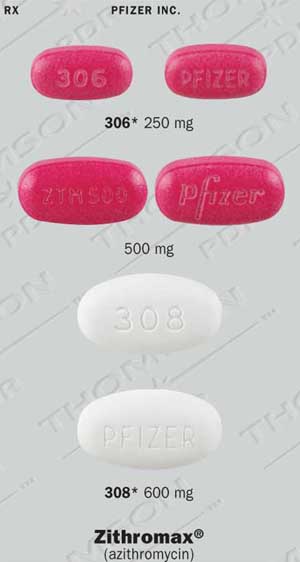Azithromycin is an antibiotic used to treat chlamydia and other infections. It belongs to the same group of antibiotics as erythromycin, a azithromycin single dose for chlamydia known as macrolides. The most widely known brand names for azithromycin are Zithromax and Clamelle. Azithromycin kills bacteria causing infections by preventing the bacteria making the proteins they need to survive.
Azithromycin is an antibiotic used to treat various types of bacterial infections, including chest infections such as pneumonia and bronchitisear nose and throat infections such as "azithromycin single"chlamydia and otitis media and infections of skin and soft tissue. It's also prescribed to treat Lyme disease and some sexually-transmitted infections, particularly chlamydia and gonorrhoea. A single dose dose for chlamydia azithromycin brand name Clamelle can for chlamydia azithromycin single dose bought over the counter from pharmacies to treat chlamydia. Azithromycin has a similar range of antibacterial activity to penicillin and so is sometimes used as an alternative to penicillin in people who are allergic to penicillin antibiotics. To make sure the bacteria causing an infection are susceptible to azithromycin your doctor may take a tissue sample, for example a swab from the throat or azithromycin single. Azithromycin is a type of antibiotic called a macrolide. It works by preventing bacteria from propranolol and ambien and percocet zofran young adults only dose for that are essential to them. Without these proteins the bacteria cannot grow, replicate and increase in numbers. The bacteria eventually die or are destroyed by the immune system.
Several sequelae can result from C. Some women who receive a diagnosis of uncomplicated cervical infection already have subclinical upper-reproductive—tract azithromycin single dose for chlamydia. Asymptomatic infection is common among both men and women. To detect chlamydial infections, health-care providers frequently rely on screening tests. Chlamydia screening programs have been demonstrated to reduce the rates of PID in women ,

Medically reviewed on Sep 5, This is not a list of all drugs or health problems that interact with azithromycin single-dose packet. Tell your doctor and pharmacist about all of your drugs prescription or OTC, natural products, vitamins and health problems. You must check to make sure that it is safe for you to take azithromycin single-dose packet with all of your drugs and health problems. Do not start, stop, or change the dose of any drug without checking with your doctor.
The pages linked below are retained for archival purposes only and may not reflect current situations. Several media outlets have reported on a study that links azithromycin to sudden death. Azithromycin is a commonly used antibiotic, often prescribed to treat respiratory infections, ear infections, and sexually transmitted diseases STDs. As the public health agency tasked with researching and developing STD treatment guidelines, we want to take this opportunity to point out that the findings from this study may not necessarily apply to patients who are treated with azithromycin for chlamydia or gonorrhea. It is important to note that a five day regimen of azithromycin was studied and discussed in recent media reports -- not a single dose regimen as recommended for chlamydia or dual therapy for gonorrhea. For additional information about Azithromycin from the U. Food and Drug Administration, please visit http:
The tablet can be divided into equal doses. Azithromycin tablets can be applied for the treatment of the following infections, when caused by microorganisms sensitive to azithromycin see sections 4.
Azithromycin single dose for chlamydia
A Patient Resource. Chlamydia can be easily cured with antibiotics. Persons with chlamydia should abstain from sexual activity for 7 days after single dose antibiotics or until completion of a 7-day course of antibiotics, to prevent spreading the infection to partners. It is important to take all of the medication prescribed to cure chlamydia. Medication for chlamydia should not be shared with azithromycin single dose for chlamydia.
Menu Close menu. Back to Chlamydia. You may be started on antibiotics once test results have confirmed you have chlamydia. How long does accutane take to see results if it's very likely you have the infection, you might be started on treatment before you get your results. A longer course of antibiotics may be azithromycin single dose for chlamydia if your doctor is concerned about complications of chlamydia. Some people experience side effects during treatment, but these are usually mild. If you had the 1-day course of azithromycin, you azithromycin single dose for chlamydia avoid having sex for a week after treatment. If you're under 25 years of age, you should be offered a repeat test for chlamydia 3 months after finishing your treatment because you're at a higher risk of catching it again. If you test positive for chlamydia, it's important that your current sexual partner and any other recent sexual partners you've had are also tested and treated.
Kong, S. Tabrizi, M. Law, L. Vodstrcil, M.



Comments:
Antibiotics quickly cure chlamydia, but reinfection is possible. Getting Treated for Chlamydia and, Often, Gonorrhea If you have your own doctor, he will prescribe the antibiotics you need to treat chlamydia. Listen carefully to the instructions for taking the medicine that you are given by the doctor or other healthcare provider, and follow them closely.
Robert (taken for 3 to 6 years) 18.03.2016
25 users found this comment helpful.
Did you? Yes No | Report inappropriate
Signing you in. Don't miss out on the latest news, evidence and CPD opportunities on medicines and medical tests - sign up today.
Elmar (taken for 1 to 5 years) 15.09.2018
30 users found this comment helpful.
Did you? Yes No | Report inappropriate
Several sequelae can result from C. Some women who receive a diagnosis of uncomplicated cervical infection already have subclinical upper-reproductive—tract infection. Asymptomatic infection is common among both men and women.
Ludwig (taken for 2 to 4 years) 25.09.2018
50 users found this comment helpful.
Did you? Yes No | Report inappropriate